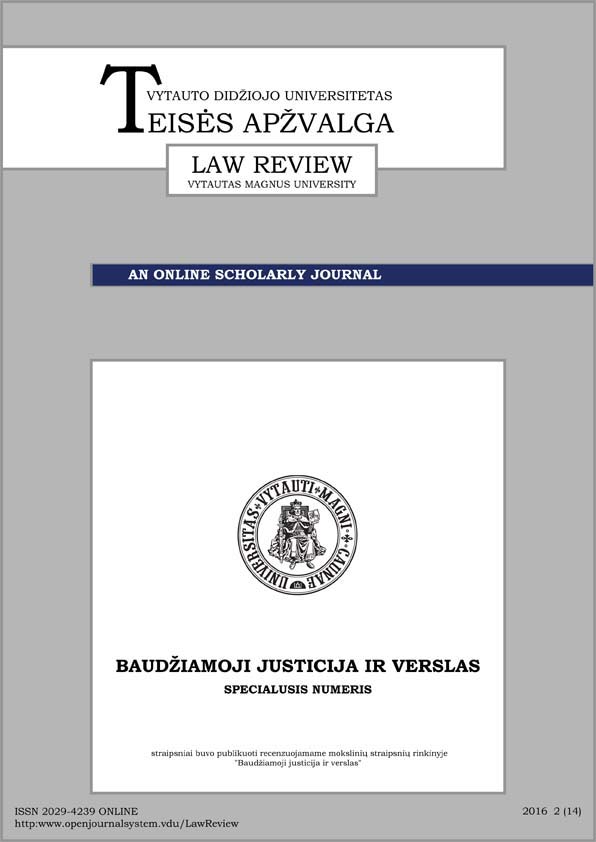Socialinio tyrimo išvada nagrinėjant baudžiamąsias bylas
Conclusion of Social Research Done by Analyzing Criminal Mases
Author(s): Ilona Michailovič, Mindaugas GirdauskasSubject(s): Law, Constitution, Jurisprudence, Criminal Law
Published by: Vytauto Didžiojo Universitetas
Keywords: Criminal procedure; Probation report; Probation; Individualization of probation conditions
Summary/Abstract: Straipsnyje analizuojama teisinė ir kriminologinė socialinio tyrimo išvados reikšmė bei galimos kliūtys ja naudotis Lietuvoje nagrinėjant baudžiamąsias bylas. The article contains legal and criminological research of significance of probation report in hearing criminal cases, and obstacles of using it.It is found that especially rare use of probation report is incompatible with the importance of such report according to the constitutional principles of justice, rule of law, and provisions of criminal law which suppose the need to individualize criminal liability. Legal acts regulating the use of probation report are quite comprehensive, but they contain certain shortcomings which may be deemed as obstacles for broader application of such reports in practice. It concerns the definition of the purpose of the report and omission to specifically regulate when it must be used. The trial court should invoke a probation report whenever there is a doubt whether in case of guilty verdict real punishment of imprisonment should be imposed or probation should be used instead of it, and in the latter case, if there any doubts exist, what probation measures should be applied.In practice, probation reports have been developed for people accused only with premeditated different dangerous crimes that violate various values provided in the Criminal Code, as well as for the persons who committed several crimes. In most cases, the crimes were committed under the influence of alcohol and in a group.For the purposes of the probation report, it was intended to individualize the probation conditions for people of all ages. Education of the persons reported on probation had been mostly poor, but often they continued studying. All the accused persons were convicted previously, their propensity to commit crimes encouraged the court to explore the possibility of adjustment of criminal conduct by the individualization of the sentence. The crime risk of the accused persons ranged from low to medium. The probation officers welcome possibility of using of the probation reports, and the accused persons agreed to cooperate with officials preparing the reports. Probation reports terms depend mostly on the accused person`s willingness to cooperate, and the officials have a small workload for probation report preparation. The officers who prepare reports identify the need of application of deeper psychological knowledge and training on the OASys (the Offender Assessment System) methodology.Judges, who have issued instructions to develop the probation reports, welcome the possibility of using of the probation report, support the individualization of the sentence or selecting of other sanction and legislation, and regulating the use of these reports, do not get a lot of attention. The judges probably assigned to draw reports due to the difficulties faced by the accused persons and to proper decision on sanctions for the accused young age persons. Judges may overestimate the charge of probation officers and, therefore, rarely assign the probation reports.The aforementioned conclusions of the article are drawn by analysing legal acts and jurisprudence of the Constitutional Court and the Supreme Court of Lithuania, recommendations of Council of Europe, legal and criminological literature, materials of criminal cases, interviews of judges and probation officers.
Journal: Teisės apžvalga
- Issue Year: 2016
- Issue No: 2(14)
- Page Range: 377-395
- Page Count: 19
- Language: Lithuanian

